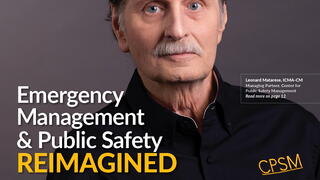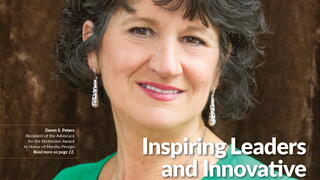Active Violent Incident Preparedness for Local Government is discussed in a three-part Voices in Local Government podcast.
Report on ethics violations and program highlights for fiscal year 2024.
Warren Hutmacher joins ICMA's Voices in Local Government podcast for a recurring Q/A theme on local gov careers, hiring, and recruiting.


Creativity is today’s currency for success.

How unspoken beauty standards hold women back and how to redefine the narrative

Emergency Management and Public Safety Reimagined

Challenges and opportunities for local government public safety to assist disabled persons in our communities

